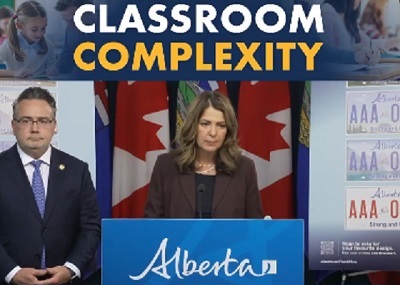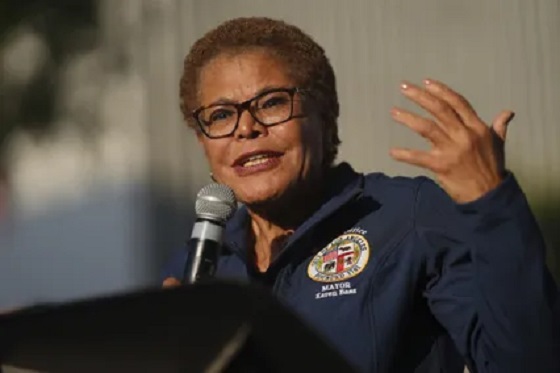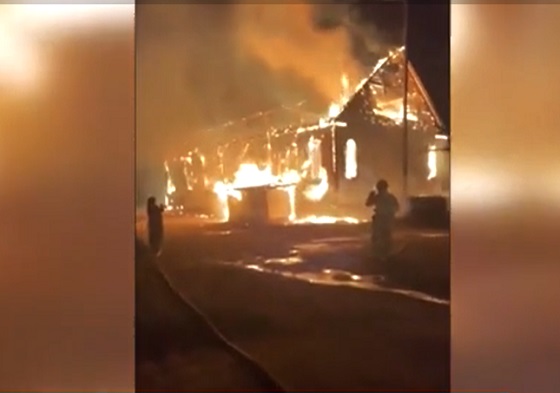Alberta
Red Deer teacher representing Canada for Most Valuable Teacher title – Just 2 more days to vote!

Local teacher in the running for $20,000 technology grant
Eastview’s Jeremy Spink the only Canadian vying for the prize
A Red Deer teacher is the only Canadian in the running for a huge prize of $20,000 and the title of 2020/21 NHL/NHLPA Most Valuable Teacher, presented by SAP (Systems, Applications, and Products in Data Processing) and he needs your votes to win!
Jeremy Spink, Teacher at Eastview Middle School, is one of three teachers across North America vying for the technology grant and bragging rights of being named Most Valuable Teacher. If he is successful, Red Deer Public Schools will use the money to support students with technology to help bring Science, Technology, Engineering and Mathematics concepts to life at Eastview Middle School.
The community can help Spink win by voting daily on the Future Goals™ Teacher of the Year website from May 3-7.
Spink won the title for the month of February after competing against dozens of other teachers across North America. Red Deer Public received a $10,000 grant in which Eastview purchased technology for classrooms.
“I didn’t really realize the magnitude of the whole program when I was nominated for February. The amount of support I received from our community was amazing – everyone really rallied around this cause. It was amazing on my part and I was touched by the support. It was such a great feeling,” said Spink. “To take this to the next level will really be putting Red Deer, Red Deer Public and Eastview Middle School on the map across Canada. To bring our community into the spotlight and show what great things we do in our schools and in our Division would be amazing.”
Spink, who has been a teacher at Eastview for more than 20 years, has incorporated the Future Goals™ – Hockey Scholar program into his classroom, which is designed to leverage STEM in hockey to create a fun and memorable learning experience.
“It is a great program and it all ties right into our curricular goals,” he said. “I am dedicated to teaching applications for STEM because I know that it not only impacts how healthy and productive students are during this time, but also their well-being and success far beyond the K-12 years.”
Eastview Middle School Principal Kevin Robertson said Spink has been a leader in the school’s hockey program and worked with other teachers in delivering programming to Grades 6-8.
“In his hockey class, and in all of his classes, he instills a love of learning and particularly a love for the game for all of his hockey class students, through positive interactions and his infectious enthusiasm,” said Robertson. “If he were to win the MVT for 2020/2021, we would look at how we could further support technology in our classrooms, whether through more devices, or through other specific technologies for our hockey program and other areas to supplement instruction.”
How can the Red Deer community help? By voting for Spink once a day from May 3-7. To vote, visit the Future Goals™ Teacher of the Year website.
“I encourage people to vote because it will help put our community on the map. The other two teachers are from Pittsburgh and Philadelphia, so to have our community of 100,000 people go up against these two huge communities and show our Alberta and Canada pride would be so great!” said Spink.
Alberta
Alberta taxpayers should know how much their municipal governments spend

From the Fraser Institute
By Tegan Hill and Austin Thompson
Next week, voters across Alberta will go to the polls to elect their local governments. Of course, while the issues vary depending on the city, town or district, all municipal governments spend taxpayer money.
And according to a recent study, Grande Prairie County and Red Deer County were among Alberta’s highest-spending municipalities (on a per-person basis) in 2023 (the latest year of comparable data). Kara Westerlund, president of the Rural Municipalities of Alberta, said that’s no surprise—arguing that it’s expensive to serve a small number of residents spread over large areas.
That challenge is real. In rural areas, fewer people share the cost of roads, parks and emergency services. But high spending isn’t inevitable. Some rural municipalities managed to spend far less, demonstrating that local choices about what services to provide, and how to deliver them, matter.
Consider the contrast in spending levels among rural counties. In 2023, Grande Prairie County and Red Deer County spent $5,413 and $4,619 per person, respectively. Foothills County, by comparison, spent just $2,570 per person. All three counties have relatively low population densities (fewer than seven residents per square kilometre) yet their per-person spending varies widely. (In case you’re wondering, Calgary spent $3,144 and Edmonton spent $3,241.)
Some of that variation reflects differences in the cost of similar services. For example, all three counties provide fire protection but in 2023 this service cost $56.95 per person in Grande Prairie County, $38.51 in Red Deer County and $10.32 in Foothills County. Other spending differences reflect not just how much is spent, but whether a service is offered at all. For instance, in 2023 Grande Prairie County recorded $46,283 in daycare spending, while Red Deer County and Foothills County had none.
Put simply, population density alone simply doesn’t explain why some municipalities spend more than others. Much depends on the choices municipal governments make and how efficiently they deliver services.
Westerlund also dismissed comparisons showing that some counties spend more per person than nearby towns and cities, calling them “apples to oranges.” It’s true that rural municipalities and cities differ—but that doesn’t make comparisons meaningless. After all, whether apples are a good deal depends on the price of other fruit, and a savvy shopper might switch to oranges if they offer better value. In the same way, comparing municipal spending—across all types of communities—helps Albertans judge whether they get good value for their tax dollars.
Every municipality offers a different mix of services and those choices come with different price tags. Consider three nearby municipalities: in 2023, Rockyview County spent $3,419 per person, Calgary spent $3,144 and Airdrie spent $2,187. These differences reflect real trade-offs in the scope, quality and cost of local services. Albertans should decide for themselves which mix of local services best suits their needs—but they can’t do that without clear data on what those services actually cost.
A big municipal tax bill isn’t an inevitable consequence of rural living. How much gets spent in each Alberta municipality depends greatly on the choices made by the mayors, reeves and councillors Albertans will elect next week. And for Albertans to determine whether or not they get good value for their local tax dollars, they must know how much their municipality is spending.
Alberta
Premier Smith addresses the most important issue facing Alberta teachers: Classroom Complexity

Premier Danielle Smith is posting this response to a media question about Classroom Complexity.
While Albertans are hearing a lot about capping class sizes, Premier Smith says it might be a much better idea to talk about capping “complexity”.
The challenges teachers face in today’s classrooms are recognized, and work continues toward practical solutions that address their concerns.
Achieving a fair and reasonable agreement that best supports students remains a top priority. pic.twitter.com/o4UCt7sDoU
— Danielle Smith (@ABDanielleSmith) October 16, 2025
-

 National2 days ago
National2 days agoDemocracy Watch Renews Push for Independent Prosecutor in SNC-Lavalin Case
-

 Alberta1 day ago
Alberta1 day agoClick here to help choose Alberta’s new licence plate design
-

 International1 day ago
International1 day agoHamas will disarm or die
-

 illegal immigration1 day ago
illegal immigration1 day agoLos Angeles declares a state of emergency over ICE deportations
-

 International1 day ago
International1 day agoDaughter convinces healthy father to die in double assisted suicide with mother
-

 International1 day ago
International1 day agoUS Warns Hamas To Halt Executions
-

 Business1 day ago
Business1 day ago‘Taxation Without Representation’: Trump Admin Battles UN Over Global Carbon Tax
-

 Indigenous1 day ago
Indigenous1 day agoConstitutional lawyer calls for ‘false’ claims to end in Canadian residential schools burials







